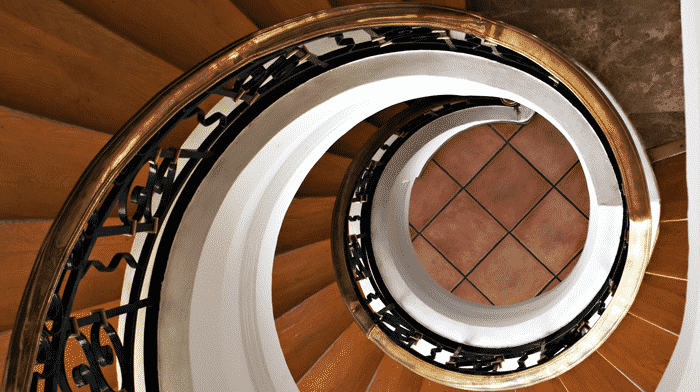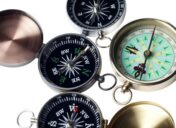Leadership musings: Paths to deeper self-awareness
OK. You’re interested in developing deeper self-awareness. You’ve read the studies; you have an inkling that there’s room for you to strengthen this crucial leadership capacity.
What are the options? The irony of self-awareness is that it relies on deep self-inquiry, AND it can’t really happen—not completely, anyway—in a vacuum. Self-awareness is greatly amplified by working within a group, whether it’s an existing team, a cross-section of colleagues from across your network, or some combination. On your own, you’ll draw on your own senses and experiences. Within a group, you’ll benefit from other people’s perspectives and practices. And you’ll be able to calibrate your behaviors and your approach because you’ll be learning about how others perceive you, and how your intention compares with your actual impact.
Here are some things you can do on your own or with others.
On your own:
- A two-part self-assessment practice:
-
- If you’re working to develop a particular capacity, think about what success will look like. What are the behaviors you’re going to try? What’s the attitude you’re going to experiment with? For example, if you’ve realized that you need to be more decisive, you can practice saying things like, “I’ll make that decision within 24 hours. Please check back with me tomorrow.” or “Given the available information, the best decision we can make in this moment is X. What are the next steps?”
- After completing a major project, facilitating a thorny meeting, or reaching a significant milestone, do a mini-review. What went well? What would you do differently next time? What was your intended impact, and what actually happened? What are the key lessons learned?
- Self-guided study: There are lots of great books, blogs, and podcasts out there. (Some of my top recommendations are listed here.)
- Self-assessment tools: Tools like StrengthsFinder 2.0 or MBTI-type inventories can be useful.
- Grounding practices like meditation, reflection, journaling, or spending time in nature. These practices can slow your mind and create an opportunity for you to connect with and notice your thoughts, feelings, and the state of your body.
With others:
- Seek feedback from colleagues, peers, direct reports, and mentors, to examine your intended impact compared to your actual impact.
- Engage an executive or leadership coach who can provide a courageous space for reflection and feedback, challenge your thinking, and champion your learning.
- Create or find a peer learning group to share resources, ideas, and perspectives.
- Enroll in a leadership development program.
- Participate in a 360° leadership assessment to identify your blind spots (the gaps between how you perceive yourself and how others perceive you.) I use the Leadership Circle Profile with clients, because it’s grounded in leadership effectiveness research that looks at our leadership capacities, AND it uncovers our reactive tendencies – basically, how we tend to get in our own way when we’re feeling stressed or challenged.
YOUR TURN: How do you cultivate self-awareness? What’s worked, and what obstacles have you found along the way?





![Staying connected over [social] distance](https://www.shorthandconsulting.com/wp/wp-content/uploads/2020/03/hans-peter-gauster-3y1zF4hIPCg-unsplash700x200-176x128.jpg)









